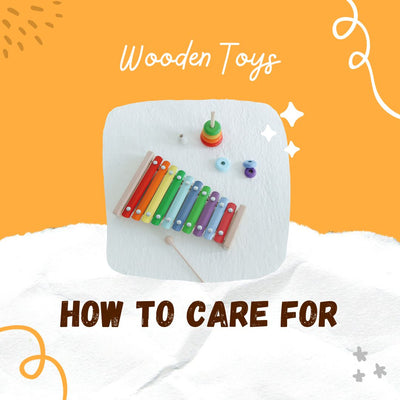Parenting toddlers can be a joyful yet challenging experience, especially when faced with the infamous toddler meltdowns and tantrums.
These emotional outbursts are a normal part of a child's development, but managing them effectively requires patience, understanding, and a well-informed approach. In this blog, we'll delve into the science behind toddler tantrums, explore strategies to handle them, and recommend sensory toys that can aid in soothing your little one.
Understanding Toddler Tantrums:
Toddler tantrums often stem from frustration, a lack of communication skills, or a struggle for independence. It's crucial for parents to recognize that tantrums are a normal part of a child's emotional development and not indicative of a parenting failure. Understanding the underlying causes can help parents respond more empathetically and proactively.
Strategies for Dealing with Toddler Tantrums:
-
Stay Calm:
- Keep your emotions in check and avoid reacting impulsively.
- Take deep breaths to remain calm and collected.
-
Empathize:
- Acknowledge your toddler's feelings, letting them know you understand their frustration.
- Use phrases like, "I see you're upset" to validate their emotions.
-
Use Simple Language:
- Communicate with your toddler using simple and clear language.
- Avoid lengthy explanations during the meltdown.
-
Offer Choices:
- Provide limited choices to give your toddler a sense of control.
- For example, "Do you want to wear the red shirt or the blue one?"
-
Create a Routine:
- Establish a consistent daily routine to minimize unexpected changes.
- Toddlers often thrive on predictability.
-
Provide Distractions:
- Offer a distraction or redirect your toddler's attention to a different activity.
- Introduce a new toy or engage in a fun game.
-
Time-Outs:
- If necessary, use a brief time-out in a calm and safe space.
- Ensure it is not seen as a punishment but as a chance to regroup.
-
Reinforce Positive Behavior:
- Praise and reward positive behavior to encourage good habits.
- Use positive reinforcement techniques.
-
Teach Coping Skills:
- Help your toddler develop coping mechanisms, like taking deep breaths or using a comfort object.
-
Seek Professional Help if Necessary:
- If tantrums persist or escalate, consult with a pediatrician or child psychologist for guidance.
Sensory Toys for Soothing:
Sensory toys can be valuable tools in managing toddler meltdowns. These toys engage various senses and provide a calming effect. Here are some recommended sensory toys:
-
Fidget Toys:
- A set of toys designed to keep little hands busy and focused.
-
Weighted Blankets:
- These blankets provide deep pressure, promoting a sense of security and calmness.
-
Sensory Balls:
- Soft, textured balls that offer tactile stimulation and can be squeezed to release tension.
-
Chewelry:
- Safe and wearable items designed for oral sensory input, helping toddlers self-soothe.
Conclusion:
Effectively managing toddler meltdowns involves a combination of understanding, patience, and strategic interventions. By employing these strategies and incorporating sensory toys into your toolkit, you can navigate these challenging moments with empathy and grace. Remember that each child is unique, and finding the right approach may require some trial and error. Stay resilient, and celebrate the small victories along the way in your parenting journey.
References:
-
Saxbe, D. E., Armstrong, L. M., & Zheng, Y. (2015). Friends and family: A cross-sectional diary study of social interactions and cortisol in everyday life. Emotion, 15(2), 201–208.
-
National Institute of Child Health and Human Development. (2018). Understanding and Managing Temper Tantrums.
-
American Psychological Association (2023). Coping with Toddler Meltdowns.





